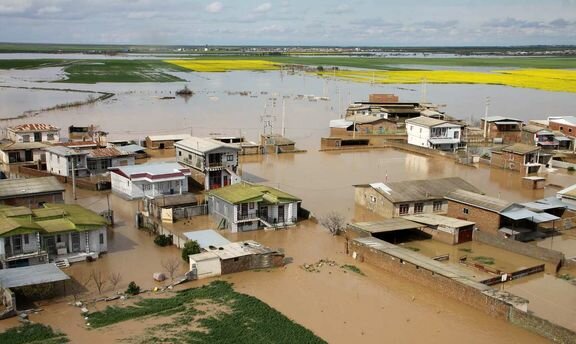144 psychological screening teams in flood-hit areas

TEHRAN — 144 teams specialized in psychological health have been sent to the areas hit by the recent flash flood in Iran, said Deputy Health Minister Alireza Raisi.
According to Raisi, the teams screened 13,000 people affected by the flood and some type of mental health problem was detected in 1,429 individuals. Also, 1,169 of the screened people had had a psychological disorder diagnosed in them before the flood, and 413 individuals were addicts already supported by a rehabilitation center, IRNA reported on Tuesday.
Sewage backup threatening Khuzestan
Raisi also referred to some sanitary problems in areas struck by the flash flood.
According to him, Sewage backup is currently among the most alarming issues in Khuzestan province especially in Ahwaz, Hoveyzeh, Susangerd, Rafi, Karun, Dasht-e Azadegan County and Hamidieh.
The problem is that the sewage discharge canals into Karun River are now swamped under water and this is aggravating the sewage backup, he said.
“Another issue is the shortage of sanitary toilets and portable bathtubs. We now need 10,000 uninfected toilets and 5,800 bathtubs in flood-stricken areas,” Raisi added.
Medical emergency teams in distressed areas
Putting together and dispatching medical emergency teams (MET), medical screening and research teams, as well as equipment for preventing communicable diseases to the distressed areas are among the measures taken by the Health Ministry to control the health condition, said Raisi.
The problem is that the sewage discharge canals into Karun River are now swamped under water and this is aggravating the sewage backup, said Raisi. “We are also constantly in touch with emergency medical teams and are on the lookout for the outbreak of any infectious disease. We are also trying to teach local people about preventing the transmission of such diseases and have done extensive supplementary vaccinations in these areas,” he said.
The key role of electronic health records
“One thing that helped us in better identifying the area, was the electronic health records that showed us the vulnerable people in each district covered by each health center. So we knew how many pregnant woman or people with diabetes or hypertension lived in these areas,” said the official.
“We have now given medical care to 10,000 pregnant women, 119,000 patients with heart problems and 4,300 patients who needed dialysis,” he added.
807 health centers damaged
According to Raisi, 807 health centers were damaged by the flash flood in a scale of 10 to 100 percent.
The Health Ministry quickly identified the damaged health centers and injured specialists on one hand and the centers and experts who were unharmed and were ready to help others. Furthermore, some universities were selected to provide help for other universities affected by the flood.
SJ/MQ/MG
Leave a Comment